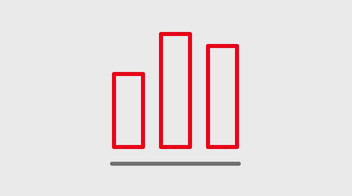Overall statement of the Management Board regarding economic development
A return to a moderate growth path is forecast for the Eurozone in 2024. European foreign trade is also expected to recover slightly, but will not compensate for the slump in the previous year. On the other hand, industrial production growth is only viewed as somewhat positive.
Economic output is expected to stagnate in Germany in 2024. The main reasons for this forecast, which is also comparatively weak internationally, are, on the one hand, the high export dependence of the German economy and the structure of exports. The high proportion of capital goods in exports has a detrimental effect, because demand in this area is particularly affected by the current high level of economic uncertainty. On the other hand, fiscal leeway appears limited, which also has a negative impact on the overall economy. The construction industry will also only slowly recover once interest rates have been lowered by the European Central Bank. Private consumption, on the other hand, could stimulate economic development in Germany. It is benefiting from relatively high wage agreements in a robust labor market and significantly declining inflation.
In passenger transport, a significant increase is also expected for 2024, due in part to positive full-year effects from the Germany-Ticket. The medium- and long-term drivers of growth in public transport will continue to have an effect.
DB Group’s ramp-up of capital expenditures continues. This is particularly true in the area of infrastructure, supported by higher Government funds.
Driven by weak economic stimuli, we expect a stagnating freight transport market for 2024. The further development of global trade in goods and, above all, freight rates in air and ocean freight is associated with high levels of uncertainty.
Major risks in 2024 result mainly from uncertain geopolitical and economic developments. The attacks on container ships in the Red Sea and the resulting potential impact on supply chains and price developments also play a role here. For this reason, cost developments in 2024 will continue to be subject to risk. In addition, ongoing collective bargaining negotiations may result in further increases in labor costs and strike costs. Another risk is that not all legal and contractual requirements for the payment of the growth of funds anchored in the Federal budget are yet available. The Management Board believes that DB Group has taken the necessary measures to mitigate certain risks and to take advantage of potential opportunities.


